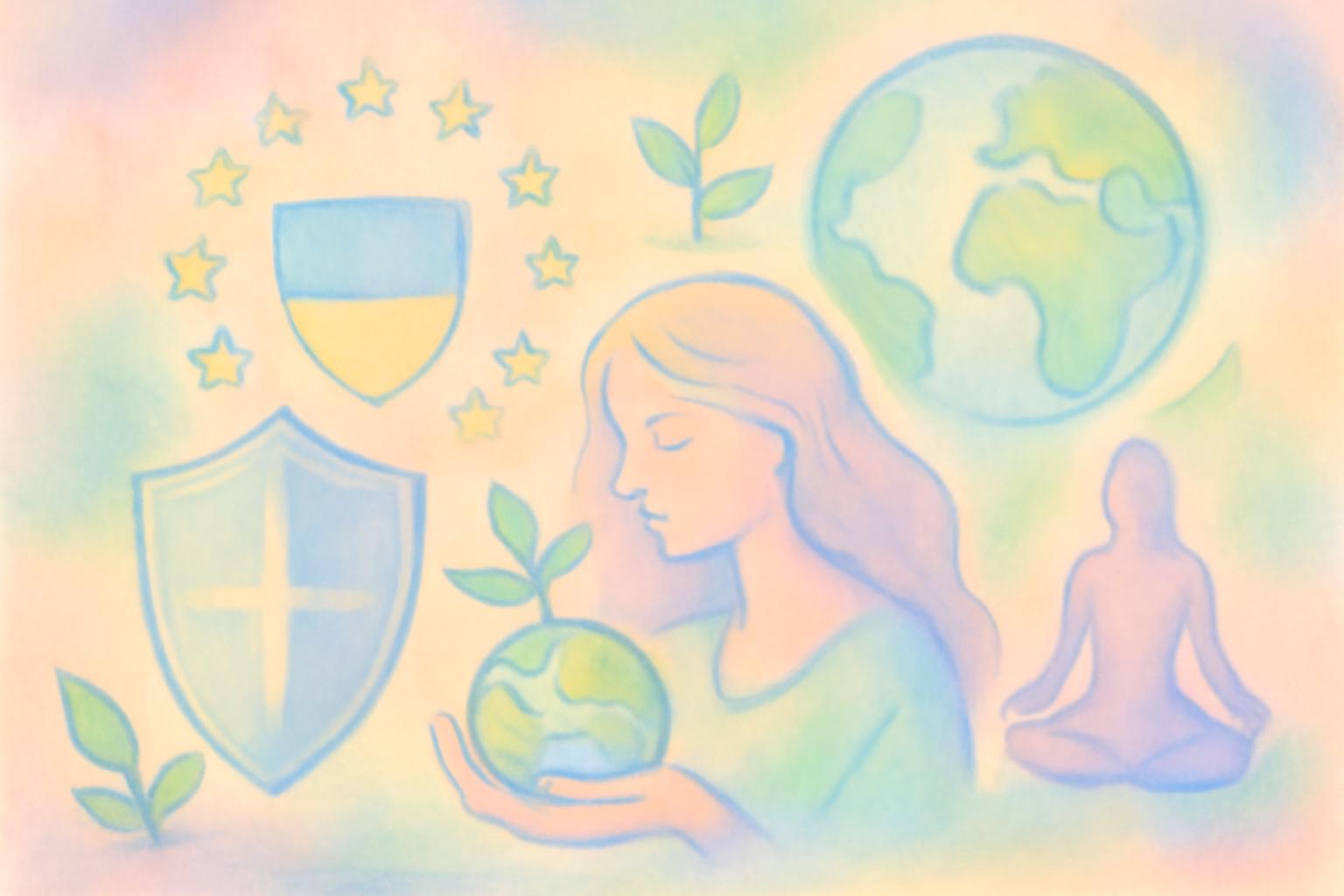A gentle thread runs through the surface of events: European defence and foreign ministers convene in Copenhagen to carve concrete steps to shield Ukraine, navigating Europe’s oscillating role between margins and spotlight. The dance is shaped by the shadow of the United States, the uncertain tempo of American backing, and talk of security guarantees that might include European peace troops but hinge on broader American involvement. The call is for credibility and robustness, for a self-contained European capability that can stand with allies, even as fears linger about nuclear power and the risks of provoking Russia. In the near term, the current flux centers on fortifying Ukraine—its military, its defence industry, and new funding streams—perhaps tapping Russian assets, all while wrestling with the signaling effects of such moves on autocracies and Western values. The outcome remains unclear, but the imperative is clear: act now to blunt Putin’s war while waiting for a wider, shared security architecture. Putin, it is said, plays for time, making decisive reinforcement of Ukraine urgent and pressing.
Yet beyond the halls and papers, there is a deeper lament. Our Mother Earth, who sustains every breath we take, bears the smoky scars of this logic that measures security in guns and borders. War devours forests, soils, rivers, and the quiet ecosystems that cradle life; it fractures communities, displaces siblings, and steals the rain and sunlight that feed harvests and healing. The soil remembers—trenches carved into the earth, munitions spilled into rivers, skies darkened by the polluting engines of domination. In this churn of power, the sacred reciprocity between people and place is broken, and the ancient wisdom of kinship with land is drowned in the clamor of escalation.
Colonial ghosts haunt the present as well: nations drawn into maps and treaties that served empires, extracted wealth, and imposed “order” through domination. The current push toward seizing assets or leveraging wealth to finance warfare echoes a centuries-old pattern—one that treats land, resources, and bodies as profitable commodities rather than living relations. This is not merely geopolitics; it is a continuation of a violence that has uprooted peoples, erased languages, and stolen sovereignty—especially from the most vulnerable, whose forests, rivers, and seeds have long sustained us all.
And at the heart of it lies the toxic engine of the capitalist system that monetizes scarcity and preserves inequality. The weaponization of money—defense budgets swelling while climate action lags, sanctions wielded as coercive instruments, and the profit motive guiding decisions that should protect life—turns security into a market, and human dignity into collateral. It asks us to choose between prowess and peace, between extraction and care, between victory and the living future we owe to our children and to the innumerable beings who share this fragile planet with us.
Let us reimagine security as a covenant with life: a governance that centers healing, not harm; diplomacy that prioritizes climate resilience, humanitarian corridors, and the protection of vulnerable communities; and investments that turn weapons of war into tools of mercy, that repurpose the vast resources of the defence economy toward renewable energy, disaster readiness, and restoration of ecosystems. Let the wealth of nations be measured not by arms, but by fresh water kept pure, soil made fertile, forests allowed to breathe, and communities empowered to thrive. May we heed the Earth’s wisdom—that true security arises when boundaries soften into kinship, when colonial legacies are acknowledged and repaired, and when capitalism is redirected toward healing rather than exploitation. In this moment, let our courage be rooted in reverence for life, and let our actions be a vow to protect both Ukraine and the living world that sustains us all.
